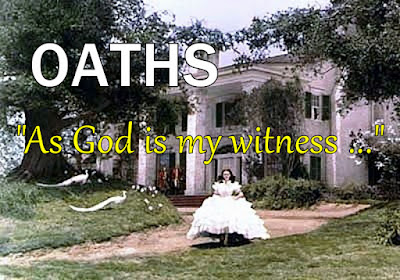WHY LENT?
2 Corinthians 5:20b-6:2
1 Peter 3:18-22

On Ash Wednesday, a cross of ash is drawn upon our foreheads and we enter into the season of Lent. Other than giving up something like sweets and waiting it out until we get to the empty tomb and the chocolate bunnies and jelly beans, what meaning does Lent have for us? Why is Lent important?
"Crucified
Laid behind a stone
You lived to die
Rejected and alone
Like a rose
Trampled on the ground
You took the fall
And thought of me
Above all."
"Above All" by Michael W. Smith
A former parishioner once complained to me about "having to go through Lent. She resented being reminded that she was a sinner. "I'm saved, so I just want to be happy and praise God." I understand where she's coming from, but if all we do during lent is focus on ourselves as miserable sinners and nothing else, I think we miss the whole point of Lent and the renewal it can bring to our relationship with God through Christ.
Yes, as human beings, we can be self-centered and unloving to the point of dehumanizing others and ourselves. In spite of that, God loves us too much to leave us in that state that leads to broken relationships and eternal death.
Imagine, you're a prisoner on death row. There's no doubt. The evidence is indisputable -- you're guilty of a crime that merits death. On the way to your execution, an innocent man volunteers to take your place and dies in your stead. You are pardoned, your record wiped clean, and you're freed to begin a new and different life.
That's what Jesus did for us on the cross and in his Resurrection. Jesus sacrificed his life for us that we could be reconciled with God and brought back into a right and loving relationship with God and with others. Our baptism is the outward sign of the inward work of God's transforming love in our lives and the promise of eternal life.
Lent is a reminder that we should not receive this gift of God's grace in vain, to live as if Christ's sacrifice has to impact on the way we live, how we treat other people and why we make the choices we do. During Lent, we reverently honor Christ by offering ourselves in accordance with Christ's sacrifice for us.
Lent is a call to sacrificial living through fasting, giving and prayer.
Fasting is giving up something meaningful to us. It can be a certain kind of food or a meal. It might be an activity like watching television or spending less on the Internet or playing computer games. I also can be a bad habit, like gossiping or speaking badly about people. Fasting is meant to challenge us and depend on God to help us remain faithful to fasting.
Giving is the sharing of ourselves and our resources with others. It can compliment fasting. If we give up something for Lent, what can we replace it with? If I give up my daily latte, how can I use that money to honor Christ's sacrifice? If we're giving up an activity, we can give that time volunteering somewhere or serving in a ministry of the church.
The Lenten practice of self-examination and confession is neither easy or comfortable, but in our honesty before God, we receive mercy and forgiveness. The burden of our sins is lifted from us and we are freed for new beginnings and better ways of living. Through prayer, we experience that inward working of God's love in action as we open ourselves to the mystery and wonder of the presence of God -- Father, Son and Holy Spirit.
Lent is a season when we have the opportunity to experience the meaning of Christ's sacrifice for us in very personal and life-changing ways. By honoring Jesus' sacrifice for us through the practices of sacrificial living, we re-center our lives on our relationship with God through Christ. We grow in our love for God and for neighbor as we become more Christ-like. And that results in positive changes in our attitudes and behaviors, our relationships at home, school and work and in the lives of those we encounter everyday.
1 Peter 3:18-22

On Ash Wednesday, a cross of ash is drawn upon our foreheads and we enter into the season of Lent. Other than giving up something like sweets and waiting it out until we get to the empty tomb and the chocolate bunnies and jelly beans, what meaning does Lent have for us? Why is Lent important?
"Crucified
Laid behind a stone
You lived to die
Rejected and alone
Like a rose
Trampled on the ground
You took the fall
And thought of me
Above all."
"Above All" by Michael W. Smith
A former parishioner once complained to me about "having to go through Lent. She resented being reminded that she was a sinner. "I'm saved, so I just want to be happy and praise God." I understand where she's coming from, but if all we do during lent is focus on ourselves as miserable sinners and nothing else, I think we miss the whole point of Lent and the renewal it can bring to our relationship with God through Christ.
Yes, as human beings, we can be self-centered and unloving to the point of dehumanizing others and ourselves. In spite of that, God loves us too much to leave us in that state that leads to broken relationships and eternal death.
Imagine, you're a prisoner on death row. There's no doubt. The evidence is indisputable -- you're guilty of a crime that merits death. On the way to your execution, an innocent man volunteers to take your place and dies in your stead. You are pardoned, your record wiped clean, and you're freed to begin a new and different life.
That's what Jesus did for us on the cross and in his Resurrection. Jesus sacrificed his life for us that we could be reconciled with God and brought back into a right and loving relationship with God and with others. Our baptism is the outward sign of the inward work of God's transforming love in our lives and the promise of eternal life.
Lent is a reminder that we should not receive this gift of God's grace in vain, to live as if Christ's sacrifice has to impact on the way we live, how we treat other people and why we make the choices we do. During Lent, we reverently honor Christ by offering ourselves in accordance with Christ's sacrifice for us.
Lent is a call to sacrificial living through fasting, giving and prayer.
Fasting is giving up something meaningful to us. It can be a certain kind of food or a meal. It might be an activity like watching television or spending less on the Internet or playing computer games. I also can be a bad habit, like gossiping or speaking badly about people. Fasting is meant to challenge us and depend on God to help us remain faithful to fasting.
Giving is the sharing of ourselves and our resources with others. It can compliment fasting. If we give up something for Lent, what can we replace it with? If I give up my daily latte, how can I use that money to honor Christ's sacrifice? If we're giving up an activity, we can give that time volunteering somewhere or serving in a ministry of the church.
The Lenten practice of self-examination and confession is neither easy or comfortable, but in our honesty before God, we receive mercy and forgiveness. The burden of our sins is lifted from us and we are freed for new beginnings and better ways of living. Through prayer, we experience that inward working of God's love in action as we open ourselves to the mystery and wonder of the presence of God -- Father, Son and Holy Spirit.
Lent is a season when we have the opportunity to experience the meaning of Christ's sacrifice for us in very personal and life-changing ways. By honoring Jesus' sacrifice for us through the practices of sacrificial living, we re-center our lives on our relationship with God through Christ. We grow in our love for God and for neighbor as we become more Christ-like. And that results in positive changes in our attitudes and behaviors, our relationships at home, school and work and in the lives of those we encounter everyday.



Comments
Post a Comment